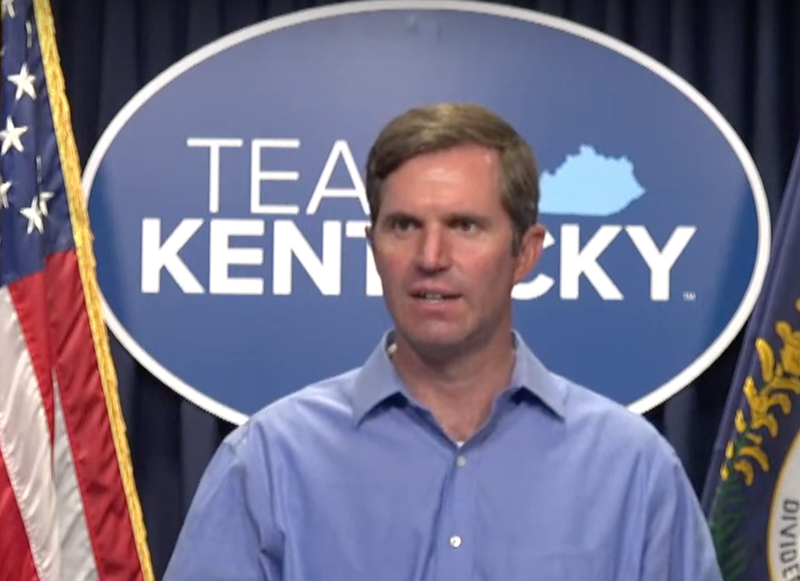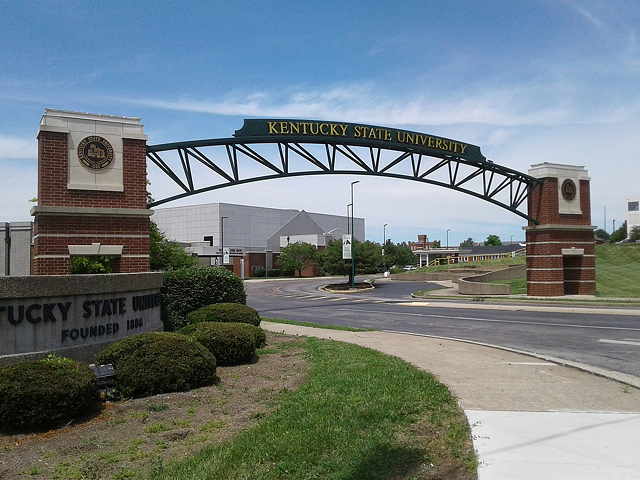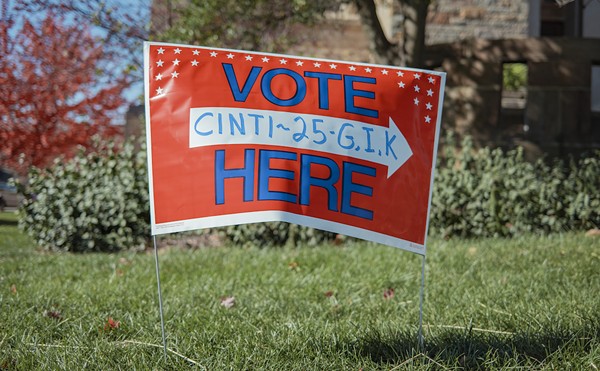Kentucky Gov. Andy Beshear was direct in his message to schools Thursday: Be smart about COVID-19 precautions or face consequences.
During a media briefing on Thursday — two days after the Centers for Disease Control and Prevention (CDC) resumed recommending mask wearing — Beshear strongly pushed universal masking for Kentucky's schools that are returning to in-person activities in August. The governor noted that the highly transmissible Delta variant of the coronavirus is quickly moving throughout the state, and masks and vaccinations are essential to stopping it from doing further harm.
"This Delta variant is aggressively spreading across this country, and places that haven't taken steps are seeing results that we should know by now — widespread outbreaks, clusters, large amounts of quarantines," Beshear said. "We don't have to have that happen. We have a very simple equation: vaccinations, plus (when we need to) mask wearing equals we can do everything that we want in our Commonwealth and our economy."
"We are strong enough and resilient enough to do this. We are compassionate enough to know we have to do this. The decisions that we make in the coming days and weeks are so critical," Beshear said.
Beshear said that some schools have been resistant to requiring masks, but that could come back to haunt them.
"Number one, you're going to have a lot of kids in quarantine. Number two, you're going to forfeit a lot of your sports, your games, your matches," Beshear said. "Number three, the more people get COVID, even young, the more likelihood there is that one of them gets hurt, has a bad outcome."
Beshear also noted some possible legal ramifications that schools could see for not implementing COVID-19 precautions.
"I can't imagine what type of liability a school system will face if the CDC told them something clearly, the state told them something clearly, and in the midst of a pandemic with the most aggressive variant yet — knowing that most of their student body was not vaccinated — did not make the right decision," Beshear said.
The governor said that all state buildings will require masks, regardless of the wearer's vaccination status. That's in line with new requirements that federal employees and contractors wear masks, as U.S. President Joe Biden outlined on Thursday.
But as he did last week, Beshear stopped short of mandating masks or other restrictions at this time, leaving those as options later.
"I'm not currently considering the mask mandate, but we will watch what’s happening," Beshear told media. "It's on the table if it's needed."
Experts believe that the Delta variant is responsible for the majority of recent coronavirus hospitalizations and deaths in Kentucky as well as throughout the country. The recent wave of cases primarily is among unvaccinated individuals.
From March 1 to July 28, the majority of COVID-19 cases (94.5%), hospitalizations (91.8%) and deaths (88.8%) were among unvaccinated or partially vaccinated Kentucky residents, said Dr. Steven Stack, commissioner for the Kentucky Department for Public Health. As he did earlier this week, Stack noted the Delta variant's swift spread recently, particularly over the past several weeks.
On July 19, Beshear said that younger Kentucky residents are increasingly getting the Delta variant of COVID-19, largely because they are the ones who are less likely to have been vaccinated. During that same briefing, Stack said that the Delta variant was "spreading like wildfire."
This week, the CDC revised its guidelines to reinstate masking for all K-12 schools as well as for people of all ages when indoors in regions of high transmission and risk, as most of Kentucky is now. "Universal indoor masking for all teachers, staff, students, and visitors to K-12 schools, regardless of vaccination status," the CDC guidance said.
During a special address July 27, CDC director Rochelle Walensky warned that the highly infectious Delta variant of the coronavirus has been dominating COVID-19 cases and hospitalizations over the past several weeks and beyond. And though the current authorized vaccines from Pfizer, Moderna and Johnson & Johnson (J&J) help lessen the severity of the virus, they can't stop it completely, she warned.
The Delta variant carries a viral load 1,000-times higher than the original virus — called Alpha — does, and it is 2.5-times easier to transmit among people, Walensky said.
Additionally, new data shows that vaccinated and unvaccinated individuals who are infected carry the same high levels of the virus; that means that even though a vaccinated person may not become hospitalized like an unvaccinated person likely would, they still could share the virus with others who are not protected. Walensky said this is a grave concern in areas with low vaccination rates and added that the virus could mutate further and become even more infectious.
Walensky noted that the country's overall low vaccination rates enabled the Delta variant in the first place. Vaccine administration for all age groups has plateaued in many states, with more people gathering both indoors and outdoors without masks.
"This could have been avoided with higher vaccination coverage in this country," she said.
Walensky said that the CDC now recommends that all individuals resume wearing face masks indoors and in crowds, especially in regions of high transmission — even vaccinated individuals. Walensky stressed that because of Delta's high transmissibility, it's much easier to infect people who can't be vaccinated at this time, such as children under age 12 or immunocompromised people.
On July 26, the day before the CDC's announcement, Dr. Patty Manning-Courtney, chief of staff at Cincinnati Children’s, said much of the safety measures are not up to the children, especially those younger than 12 who aren’t eligible for the vaccine.
“I don’t want to see the day where somebody under age 12 was infected because someone in their life chose not to be vaccinated or chose not to wear a mask,” Manning-Courtney said. “That would be a sad day.”
On July 28 following the CDC's address, Cincinnati Children's fully recommended masking for all students and employees.
The CDC's new recommendations come as Delta is sweeping across Midwestern states and population centers. Overall, 56.9% of the nation has gotten at least one dose of a COVID-19 vaccine and 49.2% are fully vaccinated. According to the CDC, a “fully vaccinated” person is one who is two weeks past their second dose of a two-dose vaccine (Pfizer and Moderna) or two weeks after a single-dose vaccine (J&J).
As of July 27, 51% of Kentucky's population has gotten one shot of the COVID-19 vaccine, according to the Team Kentucky dashboard. The data there does not break out full vaccination.
In Kenton County, Kentucky, just across the Ohio River from Cincinnati, 55.8% of the population has had at least one dose of an authorized vaccine; 49.9% of county residents are fully vaccinated. However, the CDC says that there is substantial COVID-19 transmission within Kenton County.
Many counties within Kentucky are seeing much lower vaccination rates, which troubles health experts because of Delta's highly infectious nature.
As of Wednesday morning, most of Kentucky's counties were red or orange on the CDC's tracker, which means high or substantial risk of virus transmission.
Find COVID-19 information and Kentucky vaccine locations at kycovid19.ky.gov.
Sign up for our weekly newsletters to get the latest on the news, things to do and places to eat delivered right to your inbox.






